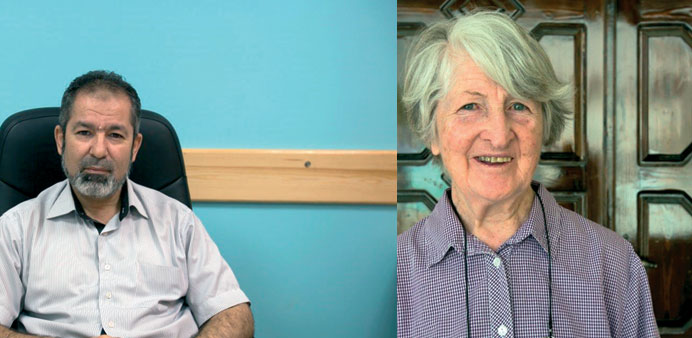Projects carried out by Qatar Red Crescent have spawned several success stories in the Gaza Strip, bringing a positive change to the lives of people there, QRC has said in a statement.
As part of the initiative, QRC has implemented a total of 27 projects in the Gaza Strip at a cost of $10mn. These include 19 projects pertaining to services for the disabled and eight for higher education.
The projects, implemented in collaboration with Palestine Red Crescent Society, have been funded by QRC and its strategic partners Al Fakhoora and Islamic Development Bank. They fall within the GCC programme for the reconstruction of Gaza.
Visual impairment services in Gaza have largely benefited from QRC’s efforts. Patients had to line up in rows as they waited for their turn at the only ophthalmic hospital in Gaza. Now, things are changing.
Describing the challenges faced by locals in terms of eyecare, the hospital’s director Dr Salam Sabah said: “People get exposed to several diseases that can easily lead to loss of eyesight if they ignore the symptoms or wait longer than they should to consult a doctor. When we talk about an eye disease or a condition, every second matters. Considering the very complicated situation in Gaza, one would find that getting a surgery appointment scheduled took much longer than what it was supposed to, starting with the fact that we faced a shortage of specialist eye doctors and lack of medical equipment in Gaza. In addition, there was the need to transfer most cases to hospitals outside the Gaza Strip.”
“After we started our co-operation with QRC on developing disability services in the Gaza Strip, especially visual impairment services, we have covered approximately 90% of the patients who needed surgical intervention, sparing them the trouble of travelling abroad and incurring the additional expenditure as well” he added.
Another success story is that of College of Abilities. Its dean, Jean Calder, expressed deep appreciation of this “step forward” and described it as an opportunity for the students to get quality education.
“This is not ‘a slight’ improvement in the educational services provided at College of Abilities, it’s actually a great deal – one that will change a lot, starting with the quality of services our teachers will provide to the students. The project, which is unique and special, will help us more effectively understand our students’ needs,” Calder explained. “The students now have a better environment to study in, learn and focus on their classes.”

Dr Salam Sabah and Jean Calder
